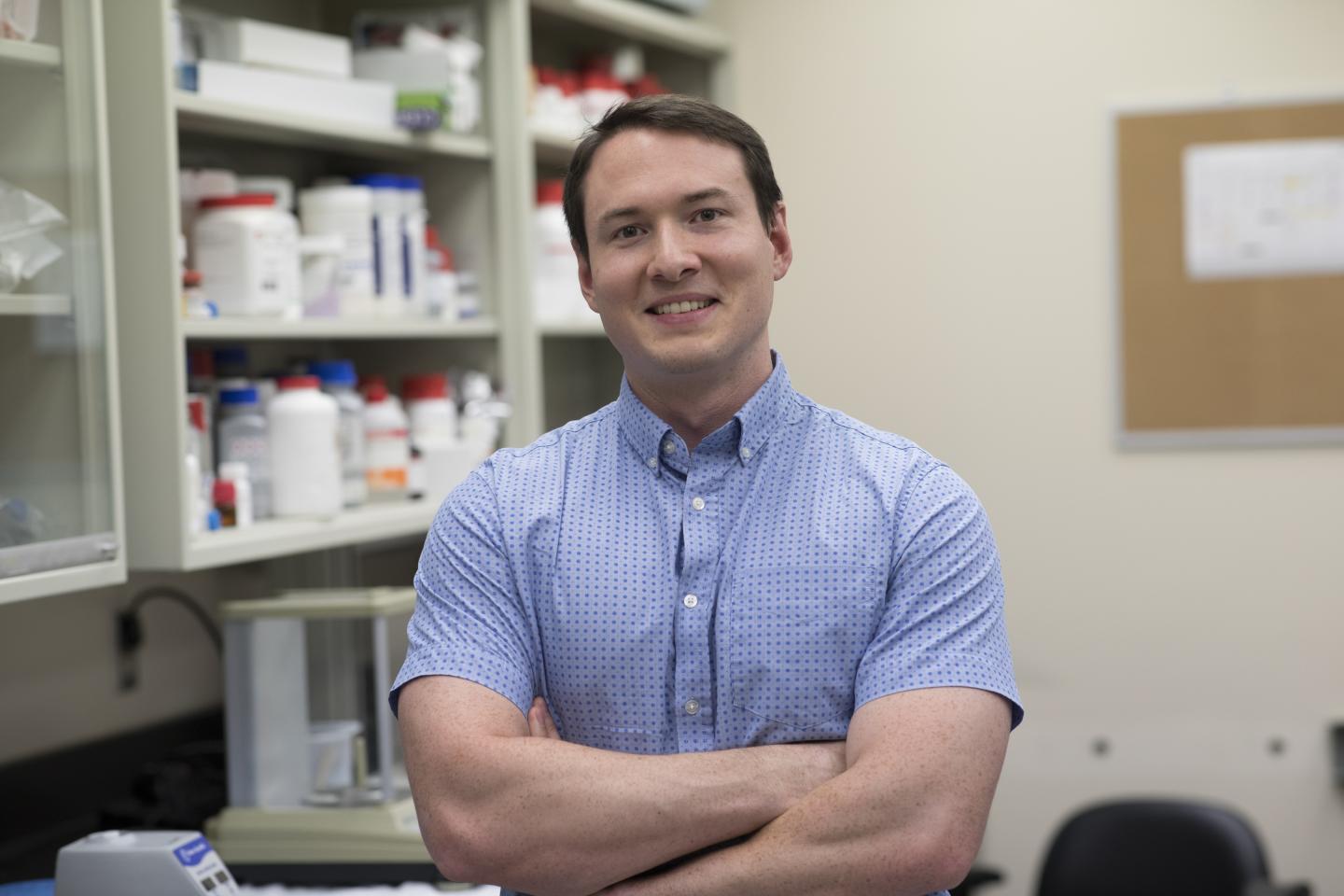
Credit: Dan Addison | UVA Health System
A young scientist at the University of Virginia School of Medicine has received a prestigious grant to determine how best to grow gut microbes to fight disease and improve human health. That work could lead to a new industry of microbe “microbreweries,” he and his colleagues believe.
Researcher Greg Medlock just received his PhD from UVA, but he has already snagged a highly competitive grant from Grand Challenges Explorations, an initiative of the Bill & Melinda Gates Foundation. The $100,000 in seed funding will let him identify how to optimize the production of 10 different gut microbes so that they can be custom-blended to battle disease. Discoveries at UVA alone have linked gut health to autism, cancer and depression, and that is just the tip of the iceberg.
“The first goal is to grow each of the gut microbes across many different conditions and try to identify the compounds that they produce and consume,” Medlock explained. “The second goal is to use those relationships [between what they’re] consuming and producing to put them together in the same culture so that they share resources efficiently. … When the microbes share the resources, you get more bang for your buck.”
A Dating App for Gut Bugs
To grow gut bugs in bulk, Medlock will need to facilitate that resource sharing in a big way. The goal is find just the right pairings, so that nothing goes to waste. What one bug makes, another consumes.
To determine that ideal state, Medlock will develop a complex computer algorithm that incorporates a tremendous number of variables. He’ll apply advanced mathematical methods that were at the core of his training with Jason Papin, PhD, in UVA’s Department of Biomedical Engineering. (Papin encouraged Medlock to apply for the Gates Foundation funding, too.)
By finding just the right mixes of bacteria, Medlock will be able to ensure all of the microbes grow with maximum speed and efficiency. “When we talk about algorithms for matching organisms that are compatible, you might sort of think about algorithms that are used to match people for dating,” said researcher Sean Moore, MD, a pediatric gastroenterologist at the UVA Children’s Hospital whose lab Medlock now works in. “We use that kind of math or computation and it goes into figuring out whether microbes are going to be compatible.”
A New Industry to Improve Health
Once the researchers can grow the bugs in quantity, scientists will be able to use them to create custom blends to benefit patients. A doctor, for example, might prescribe a certain recipe to improve your gut health, to battle disease or even improve mental health. Bulk production of probiotics could be especially valuable in the developing world, to battle diarrhea and malnutrition – a key concern of the Gates Foundation. Researchers are tremendously excited about the possibilities.
As such, Medlock sees his work as laying an important foundation for the future. “The very earliest microbiome-based products for clinical use are just coming through the pipeline now,” he said. “But since we know that the microbiome is involved in so many different conditions, we should have strategies for creating them on demand. If we lower some of the barriers, then companies can be quicker to commercialize products, and that will get these treatments to patients sooner.”
To keep up with the latest medical research news from UVA, subscribe to the Making of Medicine blog at http://makingofmedicine.
###
Media Contact
Josh Barney
[email protected]
Original Source
https:/




